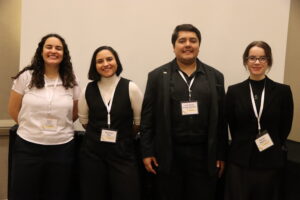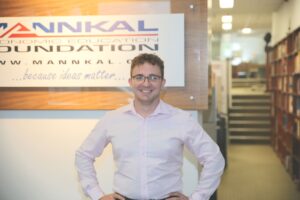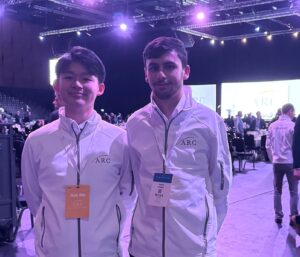It was a surreal experience to find myself walking the cobbled streets of Cambridge and attending Freedom Week in the late August summer. This unique conference, a collaboration between the Institute of Economic Affairs and the Adam Smith Institute, challenged us to deepen our understandings of classical liberalism, and to reconsider the role of government, the sanctity of individual rights, and the true meaning of freedom.
From the very first day, I found myself engaged in thoughtful discussions with students and professors heralding from the UK, Spain, Denmark, Lithuania and Canada. As we strolled down to the local pubs to enjoy a tasteful pint of mango cider, I found myself learning about life in the UK and finding commonalities with our friends from the Northern Hemisphere.
Each morning at Selwyn College, we were charged with intellectual curiosity as we prepared to hear lectures that blended the timeless principles of classical liberalism with fresh insights on contemporary challenges. I appreciated the breadth of topics and perspectives presented across the week; we heard everything from Dr Victoria Bateman on the Sex Factor, to Richard Teather on the Evils of Taxation, to Matthew Lesh on Digital Regulation, to Dr Francis Vorhies on Unlocking Africa’s Wildlife Economy, and so many more.
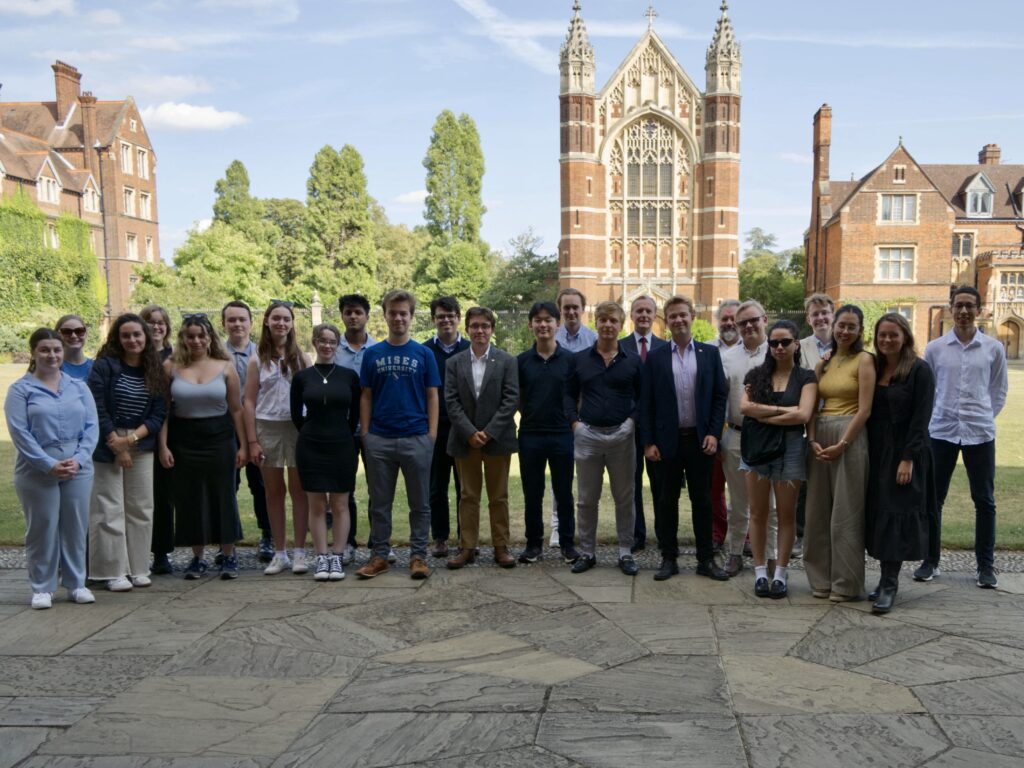
Freedom Week 2024 at Selwyn College, Cambridge
Dr Kristian Niemietz’s talk on the UK’s housing crisis was particularly interesting, and I found it intriguing to compare the differences between the UK and Australia. It was depressing, yet not surprising, to learn that the housing affordability ratio in England was greater than eight. His analysis of the housing crisis and the concept of NIMBY-ism, as well as how government interventions, including greenbelts, have distorted the housing market, sparked ongoing discussions amongst us throughout the conference. Dr. Niemietz’s proposed solutions — rolling back greenbelts, relaxing regulatory requirements, and fostering a YIMBY movement — were thought-provoking and left us contemplating the best ways to address similar challenges in Australia.
Dr Christopher Snowden’s lecture on paternalism broadened my understanding of soft and hard paternalism, and offered a new perspective on public health. He explored how the harm principle often justifies interventions, and used smoking campaigns as a case study to highlight potential flaws in public health arguments. This talk sparked an internal debate within me on how to balance economics and morality, and where to ‘draw the line’ on paternalism.
In this vein, I enjoyed the spirited debates that we partook in on morally complex topics, which included “is taxation theft or a necessary evil” and “should people be allowed to profit from organ donation”. These debates ultimately highlighted the diverse perspectives within libertarian and classical liberal frameworks.
Beyond academic rigour, Freedom Week offered us ample opportunities to enjoy the sights and sounds of Cambridge. Punting on the River Cam under the warm sun was a quintessential Cambridge experience, as discussions flowed freely as we floated down the stream. Our nights were spent enjoying the finest cuisine the UK had to offer, as we sat and chatted in the pubs into the wee hours of the night, discussing everything from our moral and philosophical views on life to laughing about the excitement that us Australians had shown towards the famed Cambridge cows (as was noted by one of the speakers during the week, whoever would be taking photos with the cows? Certainly not us!). In this spirit, one of the absolute highlights of Freedom Week for me was the friendships forged over half-asleep breakfast chats, and pre-dinner walks, and late-night talks in the Selwyn College kitchens.
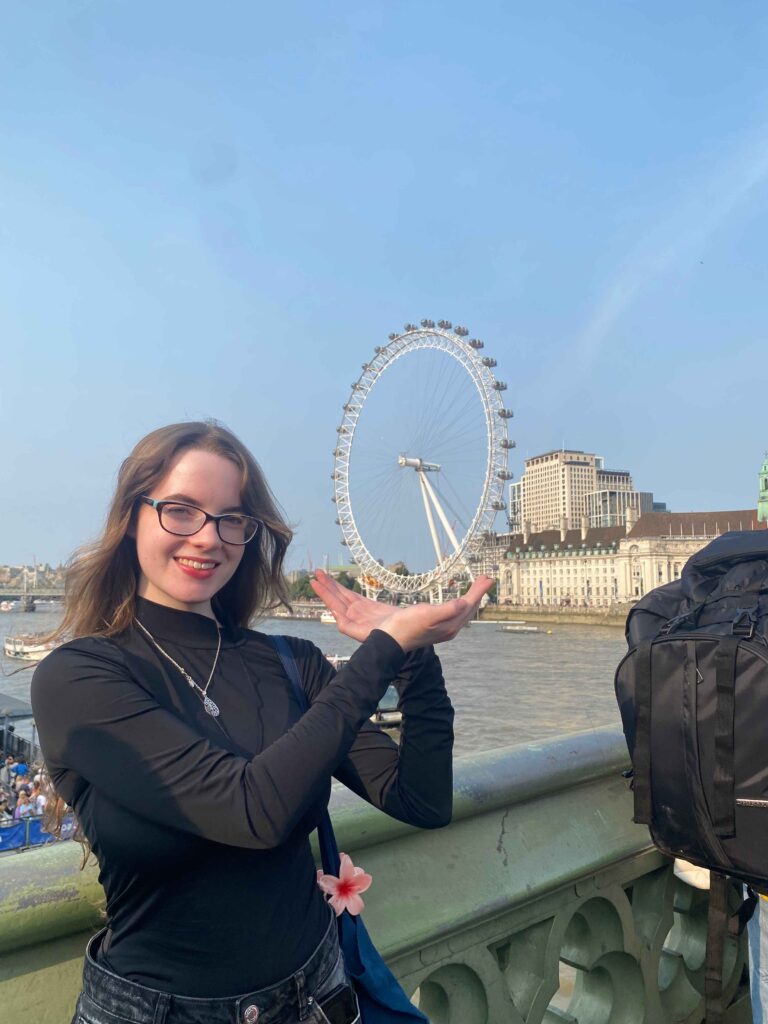
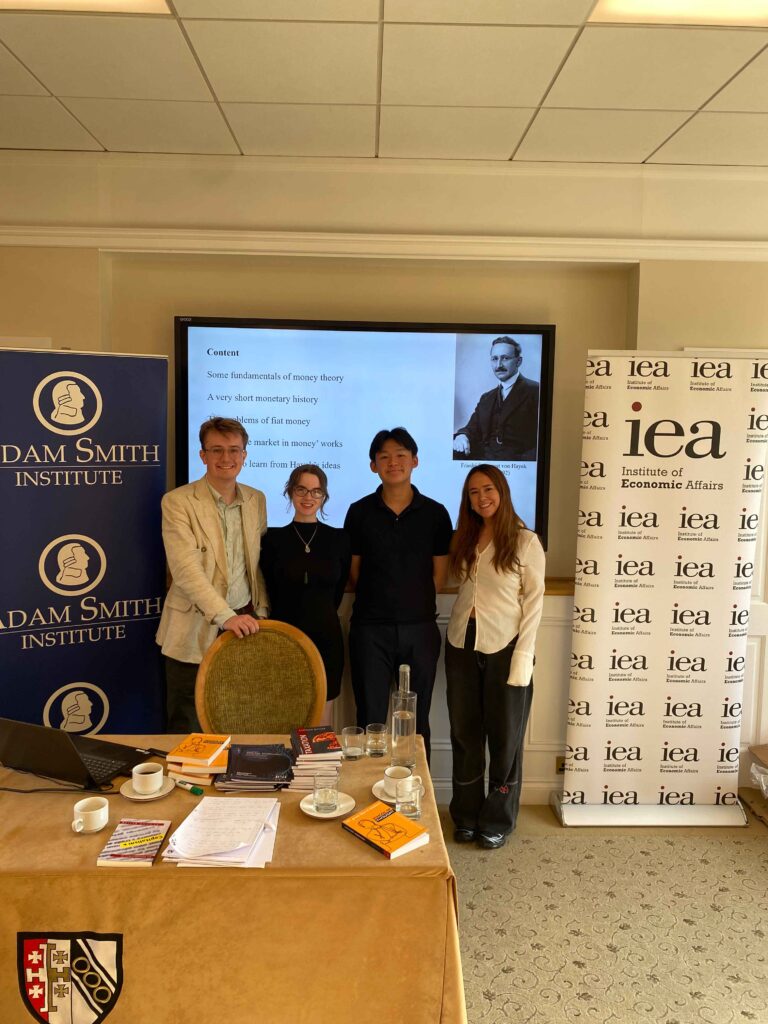
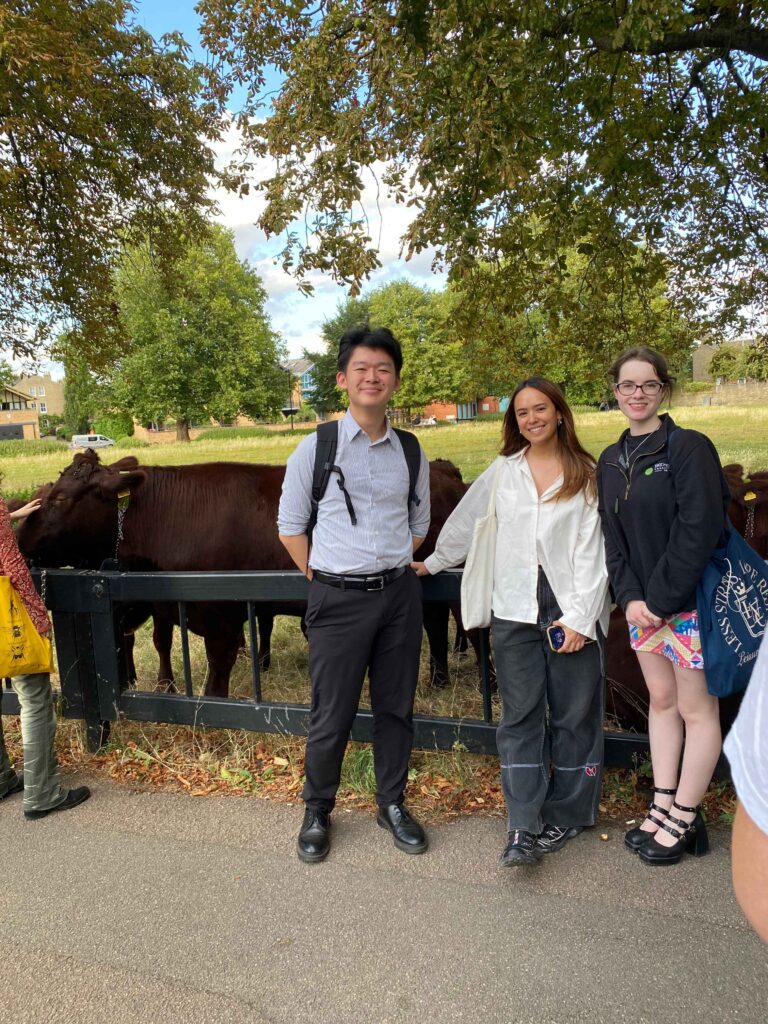
Left: Hannah holding the London Eye, Middle: Hannah, Jamie and Zoe with Maxwell Marlow at Freedom Week 2024, Right: Jamie, Zoe and Hannah with the Cambridge Cows
Reflecting back on this momentous week, the overarching theme of Freedom Week is clear: the power of free markets and minimal government intervention to foster innovation and entrepreneurship. This aligns closely with the mission of the Centre for Entrepreneurial Research and Innovation (CERI), which emphasises creating an environment that allows entrepreneurial spirits to thrive without unnecessary government constraints. My experience at Freedom Week reinforced my understanding of how overly complex regulatory frameworks in both the UK and Australia can stifle competition and entrepreneurship. In Australia, the role of government in fostering and hindering entrepreneurship can be a double-edged sword, wherein often excessive regulation, layers of bureaucratic red tape and high tax can stifle entrepreneurial spirit and limit the agility needed for startups to thrive. If Australia can move towards policies that reduce regulatory friction and support early-stage ventures, Western Australia can further develop into a hub for entrepreneurial success.
This experience was made possible through the support of Mannkal and CERI, as well as the Institute of Economic Affairs and the Adam Smith Institute, to whom I would like to extend a massive thank you for this amazing opportunity.


